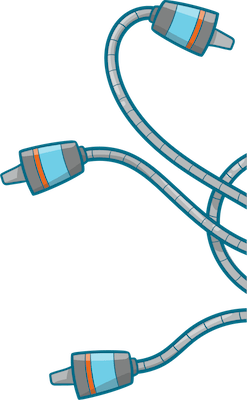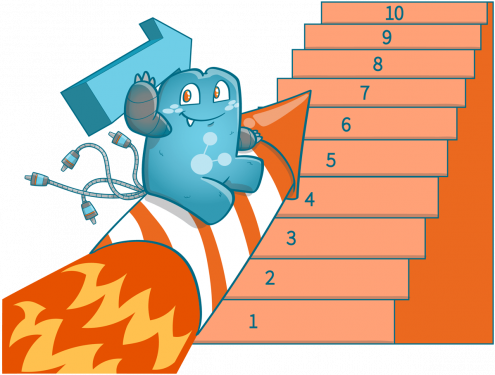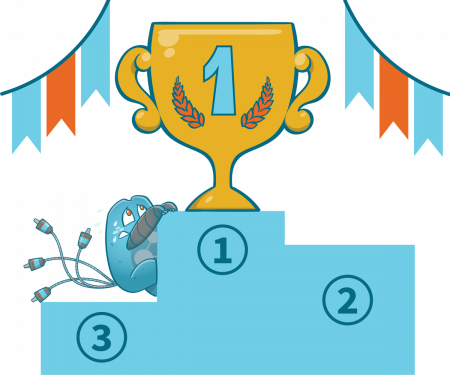9 Common SEO Mistakes to Avoid

SEO is a powerful process that helps marketers put the pages they manage on top of search engine results pages. There are a lot of aspects of SEO that you need to focus on to ensure that your site is fully SEO-optimized.
Doing SEO might sound easy, but in reality, it requires a ton of effort, time, and resources to be successful. When doing SEO optimization, the last thing you’d want to do is to make mistakes and put all your efforts down the drain.
In this article, we have listed down the most common SEO mistakes to avoid.
Wrong Target Market
Understanding your target market is among the most essential aspects of SEO. Without knowing what your audience wants, you won’t be successful in your optimization process.
The best way to start your optimization process is by researching how your target market behaves in the market and what are the triggers for conversion. You also need to create a list of probable questions that your visitors might ask and make sure to incorporate them into your content.
When studying your target market, you need to know what they often search for in search engines and the type of products they want. Through these two, you’ll be able to select the right keywords to target.
When picking keywords, you need to put yourself in the shoes of your target market and think of what they would search for when looking for a product similar to yours.

Improper Planning and Implementation of SEO Strategies
Building an SEO strategy will be easy as long as you are knowledgeable of your audience and competitors (their rankings, keywords, content, and performance). However, even if you know everything about your audience and competitors, but the planning and implementation of your strategy are not appropriately done, you won’t see the results you were expecting.
A common mistake that small and medium businesses commit when starting their SEO is that they just dive right into it and don’t spend time understanding how SEO works.
To ensure the success of your SEO efforts, you need to build a proper SEO strategy based on the information you have about your target market and competitors. In addition, you also need a roadmap so that you’ll have an idea of the phases of your SEO process.
When planning on a strategy, you need to factor in your website, products, services, IT, and the content you will publish. After this, you have to identify critical tasks to help you achieve your goals and set deadlines for each.
If you’re not adept in SEO, it is essential to hire trained SEO specialists so that your SEO efforts will be successful.
Publishing the Wrong Type of Content
Another common SEO mistake is publishing content that isn’t useful and valuable for your audience. The problem here is that even if you’re using the right keywords, but the content isn’t connected to it, search engines will see your content as irrelevant. There is a high probability that your content won’t rank well when this happens.
When creating content, you shouldn’t try to fit many topics into a single content. Publishing a piece of content with many topics is not a good idea since your visitors will only get surface-level information from your content, and you don’t want that to happen.
The primary purpose of publishing content is to give your audience in-depth information about your products, not just a quick overview. So, if you will be publishing content, make sure to create a couple of pieces of content about a topic to help users and search engines fully understand what you’re talking about.
You must also remember to diversify the type of your content. Include videos, blog posts, images, and infographics to enhance your audience’s user experience.
Failing to Improve the Click Through Rate
How do you expect an audience to click your links on SERPs if they don’t know what’s on the other side of the link?
Meta titles and meta descriptions are often overlooked by marketers when publishing content. This is detrimental for your site since users might skip your links if they see that the information you give out is incomplete.
When you optimize title tags and meta descriptions, search engines get to understand what your website is all about when they crawl your site. Remember, good content is worth nothing if crawlers won’t know the context of your content.
Not Considering the Quality of Links
To maximize the benefits of SEO, you need to fully understand how to identify the quality of external links in your content and backlinks to it.
When linking to other websites, you need to ensure that the content you’re linking to is relevant to your content and it is from an authoritative, credible, and trustworthy website. Note that the value that quality links give to your site outweighs the value that a thousand low-quality links provide.
Aside from the quality of links, the anchor text you use for the links also matters. Picking ineffective anchor texts can negatively impact your post’s performance. If the anchor text doesn’t give the visitor an idea of what they will find once the link is clicked, they might just ignore the links.
Another counterproductive practice when it comes to links is using ineffective anchor text.
Not Maximizing the Use of Internal Links
Internal links are vital to your site’s success. Some marketers tend to forget to include internal links to their posts which means that search engines can’t crawl them. This means that the page with no internal links pointing to it might not be ranked accordingly by search engines.
Another mistake related to internal links is when internal links are included in an article, but the linked posts or pages aren’t relevant to the topic of the main page.
Most marketers also overlook internal link audits. An audit is vital for your site since it allows you to spot broken links, slow pages, and essential and unimportant pages.
Slow and Non Mobile-Friendly Website
SEO doesn’t solely revolve around content and keywords on your site. It also focuses on a website’s quality and performance on computers and mobile devices.
Search engines can recognize if your website is slow and is not mobile-friendly. And if they find that your site doesn’t provide a great user experience (UX), your ranking might go down.
So before launching your website, be sure to check your site’s loading speed, the position of elements, and the size of images.

Failing to Keep Users On Your Site
After landing on your website, your next goal is to keep them engaged with your site. Once they finish reading an article, you don’t want them transferring to another site. That is why you need to place CTAs or internal links that will pique users’ interest.
When anchor texts on internal links are interesting, the on-site time of visitors is increased, and the probability that they will be converted will be higher.
Aside from showing visitors that there is more information on the topic, internal links can also be used for your marketing efforts since it acts as an endorsement for your other pages relevant to the page where they landed.
So when creating a website, make sure to create a structure that will make it easy for visitors to navigate your website.
Not Mastering SEO
Understanding the ins and outs of SEO is difficult, but it is your responsibility to fully understand what you’re getting into as a marketer. Their SEO efforts aren’t giving results for some marketers because of not studying the concept.
SEO has a lot of aspects (keywords, meta titles, meta descriptions, etc.) which means that you’d have to spend some time evaluating each and knowing their effect on your rankings and how you can optimize them and maximize their potential.
If you think that learning all about SEO and how to maximize its benefits is difficult, it is best to hire an SEO professional to do the work. However, one person can’t do the job alone; you’d need a team of specialists (keyword researcher, market analyst, digital marketer, link-building specialist, etc.) to ensure that your site will rank high in SERPs.
Hiring a team of experts is worth it since you won’t be doing any work. However, it will cost you a hefty sum of money, especially if the team is high quality.
If you’re looking for a reliable internal linking tool for your SEO efforts, grab the Internal Link Juicer plugin today!
SEO Mistakes to Avoid to Boost Your SEO
Mistakes are inevitable, especially when it comes to complicated stuff like SEO. But if you study the concept and build a strong foundation, you can surely achieve a high ranking on SERPs. Plus, by avoiding these mistakes, you can ensure that your website will be high-quality and beneficial for your target audience. Manage all your internal links in WordPress by getting Internal Link Juicer’s premium plugin.






